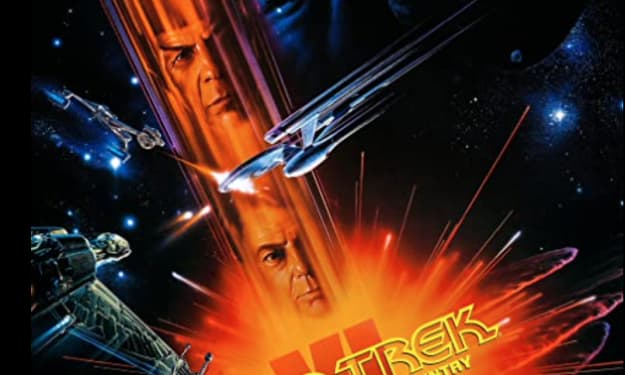Violent Mind Meld in Star Trek VI was Consistent with the Long Character Evolution of Spock
Spock's Human Adventure

Photo by Gage Skidmore
Star Trek VI doesn’t quite do it for me. But like Star Trek V, it does have some very good ideas and a bunch of amazing scenes. "Only Nixon could go to China" and Bones chiding Kirk over kissing Iman are priceless, while the dinner scene is one of the most profound in the history of the franchise. Otherwise, I have two that complete Spock’s long confusing journey, and despite their unpopularity, they put the finishing touches on the human adventure that began in 1966.
Unearthing the operative that was Lt. Valeris, Spock gives an emotional performance that brings down the house. He slaps the phaser from her hand, and then in hopes of saving the Enterprise, he freely employs the 23rd Century version of Vulcan waterboarding.
A violent mind meld, Dusty Stowe of ScreenRant calls the intervention, “a black mark on an otherwise great finale for the TOS crew," and the writer probably isn’t alone.
I’m not among the detractors. After all, “of all the souls I have encountered,” the upheavals apply the exclamation point to Kirk’s Wrath of Khan assertion.
So if we go chronologically, Spock had a bit too much emotion for some in JJ Abrams rendering. But JJ's was the Spock before the five year mission. Finally getting a look at his childhood, there was more at hand in suppressing emotion than just the burden of his human half.
The prejudice he faced was a much taller order than we ever thought. So there’s nothing inconsistent about seeing a Spock who doesn’t yet have a handle.
Onward, Spock continues under the influence, and for five (or three) years, he is a thorn in everyone’s human side. Still, Spock’s defenses do fall occasionally, and we get insightful peeks. “Jim, when I feel friendship for you, I feel ashamed,” he exasperates in the Naked Time.
Nonetheless, Spock’s rebelliousness doesn’t allow the Vulcan to see all the humanity he doles out on a daily basis. That is until the passing of Vger finally gives him pause. In such a state of confusion, the latent humanity is gone from Nimoy’s performance, and we as viewers of Star Trek : The Motion Picture suffered the absence.
The mind meld with Vger gets him back on track. “Is this all that I am. Is there nothing more,” Spock is really asking himself, and in the final scene, we see Mr. Spock returning to the balanced mindset of the original series.
Even more so in Star Trek II, Spock's primary axiom doesn’t align so well with his actions. The needs of the many outweigh the needs of the few is blindly logical. But Captain Spock is much more open to displaying his emotions of friendship and loyalty to Admiral and crew.
Ultimately, Spock opts for the numbers, and as a result, we the many got Star Trek III. On the other hand, the new math reengages Spock’s confusion in Star Trek IV, and his mother does the deed. “Then you stand here alive because of a mistake made by your flawed, feeling, human friends,” Amanda reasons.
Now, how does that feel? Spock does not know in the moment, but best guess, he will by the time the whales come home. “I feel fine,” he assures Sarek.
The same goes for us, and Star Trek V continues the discovery. “I am not the outcast boy you left behind many years ago. Since that time, I have found myself,” Spock reveals, and we find out what he actually means in Star Trek VI.
“If you are logical, you have to shoot,” he implores Valeris. Of course, logic is the last thing Spock is interested in. He angrily slaps the phaser, and acknowledges that sometimes the human response is the most powerful one.
Really feeling his oats, Spock is faced with a choice when the ship’s survival depends on who hatched the conspiracy. In this, he certainly knows that torture is not an practical means to extract information. But with the clock ticking, he puts aside the moral ambiguities and makes no apologies at the failure of his approach
So human, Unification provides the epilogue for the long haul that Spock completed. “I always had a different vision than my father. The ability to see beyond pure logic. He considered it weak, but I have discovered it to be a source of extraordinary strength. Sarek would have seen this mission of reunification as a fool's errand, but somehow I think it is not. Logic cannot explain why, I know that I must pursue this,” explained Spock.
There you go, and if you have lingering bad feelings about Spock’s dance with the dark side, it’s no longer necessary. Good job Star Trek VI, but as Picard’s brother once said, “I still don’t like you.”
About the Creator
Rich Monetti
I am, I write.






Comments
There are no comments for this story
Be the first to respond and start the conversation.